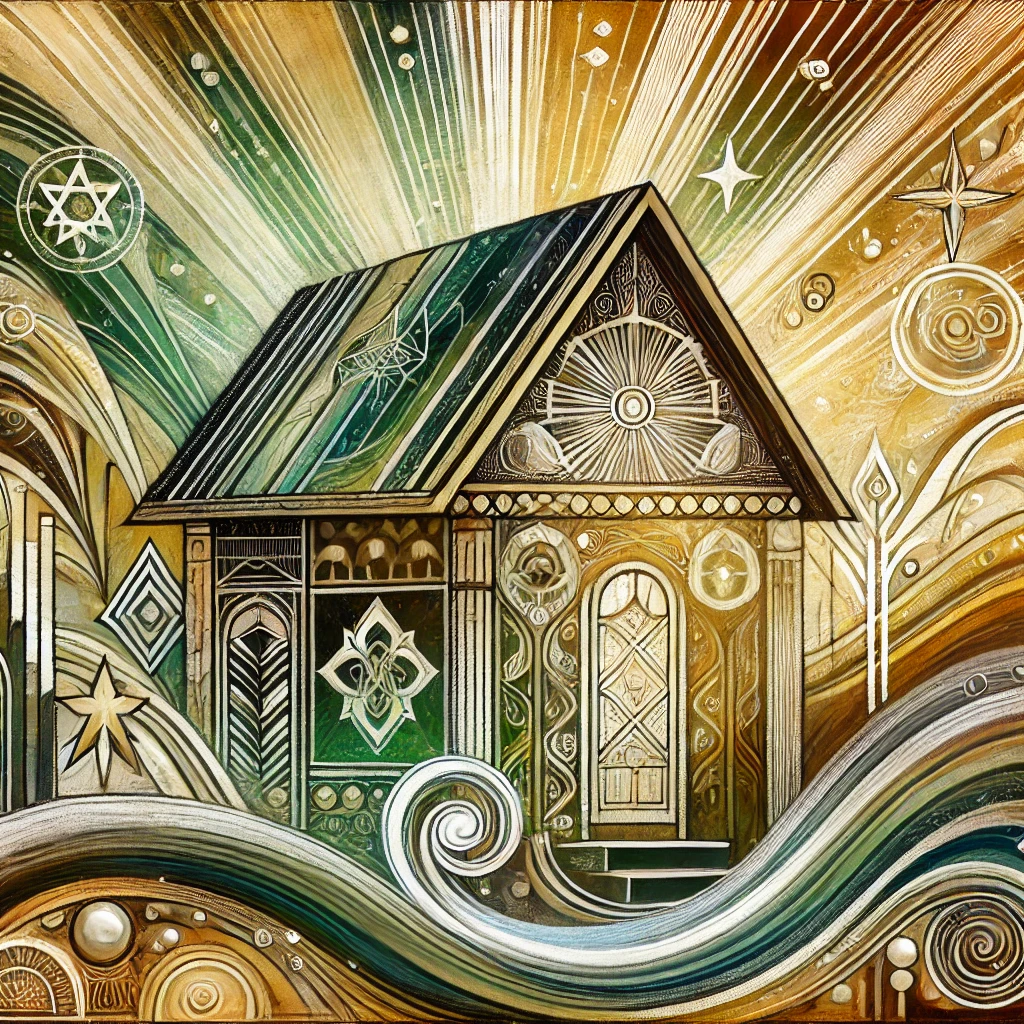Kimbanguism

Place of Origin: Central Africa (modern-day Democratic Republic of Congo)
Century of Origin: 20th Century CE
Overview of Kimbanguism
Kimbanguism is a spiritual and philosophical movement founded in the Democratic Republic of Congo in 1921 by Simon Kimbangu. It combines Christian teachings with African cultural values and emphasises spiritual awakening, social justice, and the empowerment of African people. The philosophy seeks to restore African dignity, challenge colonial oppression, and promote unity and ethical living. Kimbanguism is not just a religion but a framework for personal and communal transformation, rooted in peace, compassion, and a deep connection to divine principles.
Kimbanguist metaphysics asserts that God (Nzambi Mpungu) is the supreme creator and sustainer of all existence. The movement stresses the spiritual interconnectedness of life, where the physical and spiritual realms are deeply intertwined. Simon Kimbangu is regarded as a prophet chosen by God to guide humanity toward truth and liberation. Divine intervention, the sacredness of life, and the presence of spiritual forces in everyday experiences are key metaphysical concepts. Kimbanguism also views history and destiny as shaped by spiritual principles, underscoring the importance of aligning human actions with divine will.
Knowledge in Kimbanguism is derived from divine revelation, spiritual insight, and the teachings of Simon Kimbangu. The Oath of Kimbangu (a sacred text) and other oral and written traditions form the foundation of its epistemology. Wisdom is also gained through communal worship, prayer, and reflection on scripture. The movement blends Christian teachings with African interpretations, providing a unique perspective on understanding God, humanity, and the universe. Elders and church leaders play a vital role in transmitting knowledge, ensuring it is preserved and applied to modern contexts.
Kimbanguist ethics centre on principles of truth, justice, humility, and compassion. Followers are called to live in harmony with others, prioritising the collective well-being over individual desires. Ethical living involves respecting human dignity, rejecting violence, and promoting social justice. Kimbanguism encourages peaceful resistance to oppression and highlights the importance of forgiveness and reconciliation as pathways to personal and communal healing. These principles are applied to daily life, fostering a society built on fairness and mutual respect.
The logic of Kimbanguism is grounded in spiritual and moral causality. Actions are seen as having both material and spiritual consequences, emphasising the need for righteousness and justice. Reasoning in Kimbanguism involves reflecting on the alignment between human actions and divine principles. Dialogue and collective reasoning are valued for resolving conflicts and fostering unity. This approach highlights the interconnectedness of ethical choices and their broader impact on society and the cosmos.
Aesthetics in Kimbanguism are deeply tied to its spiritual and cultural identity. Music, particularly hymns and songs, plays a central role in worship and is used to express devotion and hope. These hymns often incorporate African rhythms while reflecting Christian themes, creating a unique blend of cultural and spiritual expression. Ceremonial attire, art, and sacred spaces embody the values of purity, unity, and reverence for the divine. Kimbanguist aesthetics celebrate African heritage while conveying a message of spiritual liberation and collective empowerment.
Kimbanguism employs a methodology that combines spiritual practice, communal worship, and reflective study of teachings. Prayer and meditation are central to connecting with God and seeking guidance. Communal worship fosters a sense of unity and shared purpose, while dialogue and teachings from church leaders help individuals interpret and apply the philosophy to their lives. This methodology integrates intellectual reflection, spiritual devotion, and community engagement, making it accessible and transformative.
Kimbanguism views humans as sacred beings created in the image of God, with inherent dignity and purpose. It emphasises the equality of all people and rejects discrimination, advocating for the empowerment of African communities. Individuals are seen as co-creators with God, responsible for contributing to the betterment of humanity. Life is understood as a journey toward spiritual fulfilment and alignment with divine principles, where ethical living is key to achieving harmony with oneself and the world.
Kimbanguism’s political philosophy advocates for justice, equality, and non-violence. Simon Kimbangu’s teachings promoted peaceful resistance to colonial oppression, inspiring movements for African liberation and self-determination. Leaders are called to act with integrity and to prioritise the well-being of their people. Governance, according to Kimbanguism, should align with moral and spiritual values, fostering unity, fairness, and respect for cultural heritage.
Kimbanguism began in 1921 when Simon Kimbangu started his prophetic ministry, preaching spiritual awakening and liberation in the Congo. His message challenged colonial rule and sought to restore African dignity, leading to his imprisonment by Belgian authorities. Despite persecution, Kimbanguism grew into a major spiritual and cultural movement, recognised as a church in 1959. Today, it has millions of followers worldwide, continuing to inspire efforts toward justice, empowerment, and spiritual transformation.
Key themes in Kimbanguism include spiritual awakening, social justice, non-violence, African empowerment, and the interconnectedness of humanity. The philosophy emphasises ethical living, respect for cultural heritage, and the pursuit of harmony with divine principles. It provides a framework for personal growth, communal unity, and global reconciliation.
Simon Kimbangu is the central figure in Kimbanguism, revered as a prophet and spiritual leader. His teachings have profoundly shaped the movement, inspiring generations of followers. The leadership of the Kimbanguist Church continues to preserve and expand his legacy, ensuring its relevance in contemporary contexts and advocating for justice, peace, and human dignity.



